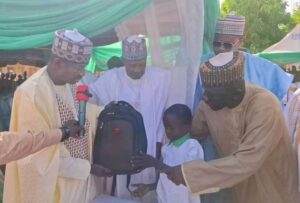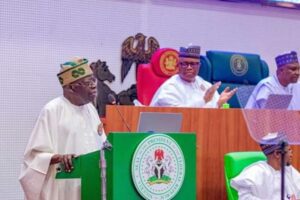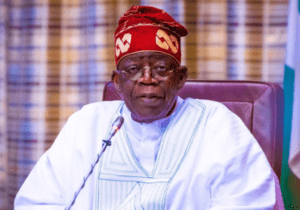Nasarawa first indigenous private varsity to begin academic activities Jan. 2024
Phoenix University, Agwada, Nasarawa State, the first indigenous privately-owned university in the state is set to begin academic activities in January 2024.
The university is owned by Abdullahi Adamu, former governor of Nasarawa State and immediate past National Chairman of the All Progressives Congress (APC).
Prof. Abdullahi Bala, pioneer Vice Chancellor (VC) of the university made the disclosure during a press conference at the institution on Wednesday in Agwada, Kokona Local Government Area of the state
The VC said that the institution was currently admitting students into eight departments in the three faculties and that lectures would begin in January 2024.
He listed the faculties to include Natural and Applied Sciences, Computing, as well as Social and Management Sciences.
Prof. Bala explained that the university had received formal approval and registration from the Federal Government on May 27, 2023 having fulfilled all initial regulatory requirements.
He also said that the National University Commission (NUC) had issued them final approval to commence formal academic activities.
He added that NUC was satisfied with the quality of infrastructure and academic resources inspected at the university.
“We intend to embrace a model of pragmatic teaching, learning and research capable of creating a balance between practical and theoretical modes of teaching and learning.
“We are not going to be the usual tertiary institution because it was conceived to provide qualitative and functional education that will equip our students with skills to make them employable as well as employers of labour,” he added.
Bala pointed out that the institution would leverage technology to ease teaching and learning, thereby providing quality education to the students in a serene environment.
“This institution is built on the foundation of the use of technology to deliver cutting edge education in all spheres.
“From classroom instruction to practical sessions, we have installed strong Information Technology infrastructure that will allow for seamless virtual interaction between students and lecturers.
“All our classrooms are fitted with interactive boards as well as white boards to enable transition from one mode of instruction to another,” he said.
The VC said that only 500 students would be admitted for the 2023/2024 academic session but hoped to increase in subsequent sessions.
According to the VC, all students will be housed in campus-based hostels and staff quarters will be provided for all categories of staff.
On the issue of security, the vice chancellor said that security gadgets have been installed within and around the university, adding that management was collaborating with all the security agencies in order to protect staff and students.
“Serious security measures were taken to ensure that our staff and students will be safe given the security challenges confronting the nation, where tertiary institutions were often used as soft targets,” he said.
The VC also took journalists on a facility tour of the university.




